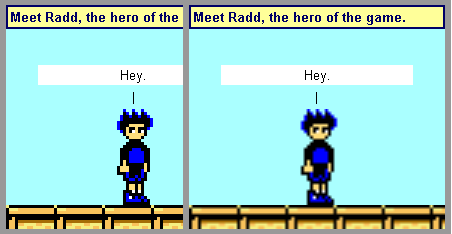Take the new Firefox in its glittering third incarnation. Praised as the final nail in Internet Explorer's coffin, this new piece of fine programming offers quite a few changes that are supposedly good. Because, remember, change is good.
Or so they say.
Now, when I fired up my fox on the very same computer I'm typing this here, it became hungry. So hungry in fact that it started eating my hard drive. I heard loud rattling noises coming out of the computer case and it sounded like a party in there. Or mayhem. Either way, I realized the fox was guilty because when the fox was gone, the party was gone too. So I summoned the fox again and did a google search. Some people were actually experiencing the same party in their computer cases. What a load of fun, I thought. I stumbled upon a small hint, too: Enter about:config in the new "smartbar" (I'll get to that), look for the value "Urlclassifier.updatecachemax" and set it to 104857600. Word on the street was that Firefox for Linux already had that value set. Only Windows' foxy browser had the peculiar -1 as default.
I restarted the fox and the hunger for hard drive was stilled.
Now the "smartbar" is another one of those changes. In previous installments of the browser you started typing and it suggested URLs starting with the letters you just entered. The new addressbar actually looks up URLs where the entered letters are anywhere in the URL or in the title of the page you're trying to find. I realize it is a plain matter of habit. We simply re-learn how we're looking up visited pages. But here's a quick example:
If I were to go to phq.muddasheep.com I could now simply write "pers" and it would get me the URL for the website with the title "Personal Halfquake". That's fine by me. Now if I want to go to www.muddasheep.com (for whatever reason) I type "mudda" and I get the URLs for phq.muddasheep.com, net.muddasheep.com/exp, farm.muddasheep.com and other URLs I apparently visit more often than muddasheep.com itself - leaving me no other choice than to write the whole address letter by letter.
I'm not complaining here, just examining. Change is good and humanity is flexible enough to wrap its brains around anything.
There's another exciting feature I would like to present. I'm sure you've noticed that whenever an image gets resized, the new graphics engine in Firefox 3 actually displays the image very smoothly (just like Opera and I believe all browsers on Mac running OS X). I can think of a few occasions where this might come in handy for masters of the web. But all in context with laziness. Well, laziness is such a harsh word. Let's call it convenience.
Take image galleries, for example. Normally you have a bunch of thumbnails acting as a general overview of the whole collection of pictures. Clicking on one nail opens up the high-res version. Thumbnails were created either manually or automatically to make the thumbnail appear "smoother" and also to reduce traffic. Now, some people might come along and say, y'all got cable, I don't need no thumbnails on my website - and just throw in the full resolution images into the overview page with a fixed width and height. Well, it does look good in your browser, and that's what counts! Or so the excuse might sound like. Hell, some people already do that today, only now they look "better" doing so.
It also works the other way around. A website normally has some kind of logo. If the page design changes, the logo might be too big now. No problem, says the webmaster, I'll just do a width="300". Problem solved - it still looks good anyway. Problem is: Some people already did that when images didn't get smoothed out. But now it might just become a popular habit. With probably more and more images resized on the local machine, let's hope Firefox, the third, can handle all that live-smoothing.
Alright, now for the last point on our agenda: Pixel art.
Some of you may remember Kid Radd. Dan Miller, the creator, had the ingenious idea to make small graphics - thus decreasing traffic and download times - and double the size of those images for display. Now look what happened:

(Left: Old; Right: New)
Now this Dan right here might have to redo his whole comic in a different format. That's 600 strips. And Dan is definitely not the only one using that pixel technique for art. Lots of other websites need to figure out a way now to resize the images before sending them out to the browser.
You know, I like change. To me it's a synonym for "decent challenge". And the internet is all about "change or be changed". That's probably because I like it here.
